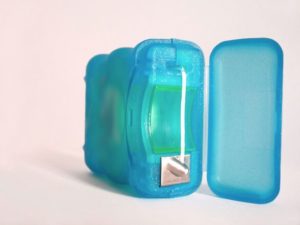Chewing and smoking tobacco are known to cause severe health problems, particularly in the lungs. But the risks to your mouth and teeth can be just as extensive and alarming. If you use tobacco, stop. Here’s what tobacco can do to your oral health.
Chewing Tobacco
According to the Academy of General Dentistry (AGD), tobacco chewers increase their risk of developing gum and cheek cancers by 50 times. Tobacco dissolves the gums which leads to sensitivity from exposed roots. This also makes for an ideal location for bacteria to grow, leading to decay. If you are chewing tobacco, stop, and ask our experienced oral health team about what you can do to keep your mouth healthy.
Smoking
According to a report by the AGD, smoking one pack a day can lead to the loss of two teeth each decade of your life. Smoking increases your odds of losing teeth. Cigarettes and cigars are both damaging to your oral health. Smoking can cause staining as well, leading to an unattractive smile.
Oral Cancer
Oral cancer can develop in several places in your mouth including on your tongue, lips, mouth floor, and gums. Those over 50, are at an increased risk of developing oral cancer, as are men. However, Oral cancer has been on the rise, especially for people under 30 according to the AGD. Schedule an appointment with us to receive a thorough oral health examination, and ask us about an oral cancer screening, particularly if you are a tobacco user. Oral cancer screenings are often very quick as our dentist checks your mouth, teeth, and cheeks for signs of irregularities. If caught early, oral cancer can be treated.
If you are a tobacco user, we strongly advise you to quit. You can work with our professional dental team as well as your doctor to overcome tobacco use. Everyone should be receiving regular oral health examinations, but if you are a tobacco user, you need to be especially vigilant in doing so. Schedule a visit to our office so that we can work with you to identify any potential issues.
For more tips on keeping your mouth healthy or to schedule your next visit to our office, please contact us.



 Many people are surprised to learn that, for years, they have actually been brushing their teeth the wrong way. Brushing your teeth the wrong way may cause oral health problems. Learn how to brush your teeth the right way and you will protect them for many years to come.
Many people are surprised to learn that, for years, they have actually been brushing their teeth the wrong way. Brushing your teeth the wrong way may cause oral health problems. Learn how to brush your teeth the right way and you will protect them for many years to come.
 Your gum health may have an impact on your cognitive function. One recent study found a correlation between gum disease and increased cognitive decline for people living with early stages of Alzheimer’s disease. While more studies are needed to make a definitive connection, this study illustrates the importance of continuing the conversation about oral health and its impact on your entire body.
Your gum health may have an impact on your cognitive function. One recent study found a correlation between gum disease and increased cognitive decline for people living with early stages of Alzheimer’s disease. While more studies are needed to make a definitive connection, this study illustrates the importance of continuing the conversation about oral health and its impact on your entire body.













